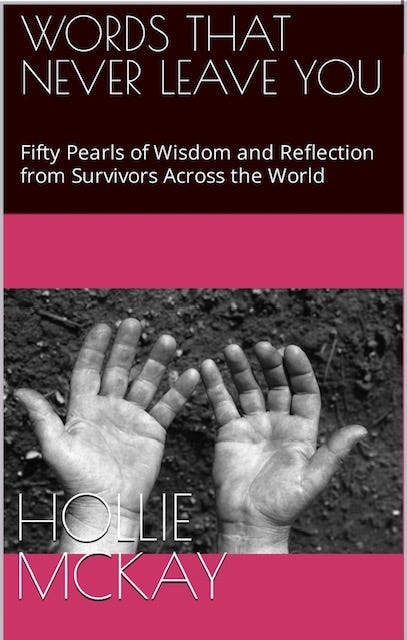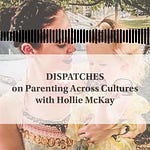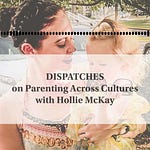TRANSCRIPT. PODCAST FEATURING HOLLIE MCKAY & DENNIS SANTIAGO. (Please excuse typos, edited for clarity)
DS: Hey, welcome to another “Words that Never Leave You by Hollie McKay.” It is Fifty Pearls of Wisdom and Reflection from Survivors Across the World. This is how she came into the life. Hollie, tell us about this quote.
HM: Yes, well, I remember this was in a a tattered tent. It was a displacement camp that was on the corner between where Iraq, Turkey and Syria all converge. And it was for Yazidis and this was during the ISIS conflict. And there was a little girl named Esma and she had this sun-fried hair and these clay caked eyelashes. And she just came and sat in my lap. She wasn't able to speak, and nobody seemed to be able to tell me why. Still, Esma communicated very powerfully with her eyes that vacillated between melancholy and excitement and confusion. This was all in a matter of seconds.
I asked if the strain from the ISIS invasion had brought on Esma’s condition, and that's why she couldn't speak. I had this really lovely interpreter and he was a very tender-hearted man from Baghdad and his name was Haider. And so he translated the father's words back to me. And he said, “this is how she came into the life.” And I just repeated it in my mind, and that phrase has always stuck with me since then, and I think it's such a beautiful and much more lyrical way of referring to giving birth. I think oftentimes when I'm working in these places words are lost in translation and then other times they're even more striking. And for me, this phrase really just spoke to me and and how we dome into the life. And what a beautiful way to look at birth.
DS: For this particular child. Is it normal or or were other children like that, that you ran into?
HM: A lot of children with various different disabilities are particularly common, especially living in wartime. If that child was in the United States, she could, even through the public education system, seek out help like speech therapy or get to the the root of the problem. But in places like these resources are hard to come by, hence why nobody could tell me what her condition was, or why she didn't speak because they're there just aren't after the resources to even diagnose.
DS: Well, so there's a there's a sad statement on the the whole thing right there, isn't it? I mean, you know, like what we take for granted here in our part of the world that just doesn't exist over there. Well, Hollie, that's poignant as a a vignette for how one human being got started and how difficult conditions are even for those who care for that person…
HM: Yeah, it's it's a tough life, but we all come into the life in our own way and bring. our own gifts and and personality with that. So, I think it's also a nice reminder of that too.
DS: There we go. I get why that quote won't leave you. So thank you for that. And we'll see you on the next one.
PURCHASE YOUR COPY OF “WORDS THAT NEVER LEAVE YOU” TO READ MORE REFLECTIONS AND ANECDOTES
** Short read of meaningful lessons gleaned from the ordinary forced to become extraordinary
For speaking queries please contact meta@metaspeakers.org
I am also available for a select number of private coaching sessions for those wishing to write a book or venture into the foreign journalism space. Please contact directly for rates hollie@holliemckay.com
PLEASE CONSIDER A PAID SUBSCRIPTION TO THIS SUBSTACK TO KEEP INDEPENDENT JOURNALISM ALIVE.














Share this post